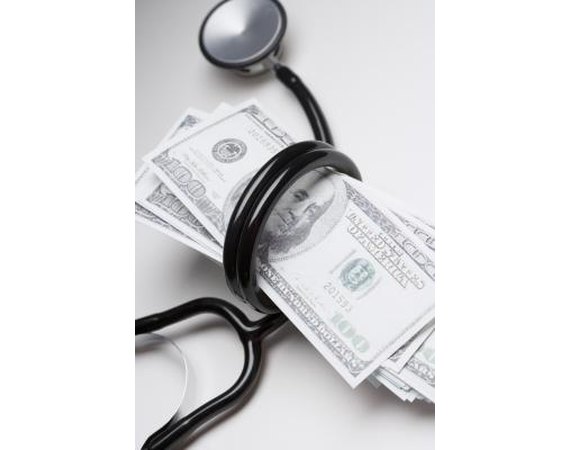
For those who lack insurance or whose insurance provider does not cover the total health care costs they incur, a single medical emergency can spell financial ruin. For example, the cost of an appendectomy, a relatively common surgery in the U.S., typically falls between $15,000 and $18,000 -- a tall order even if you're only liable for a portion of the debt. Your fear of incurring medical debt shouldn't prevent you from seeking the care you need. Financial assistance is available for those who cannot afford their hospital bills.
Government Assistance
The U.S. government's Medicaid program provides low-income individuals and their families with health care coverage. Although Medicaid is a federal program, each state has its own qualifications consumers must meet before receiving coverage. In addition to covering 100 percent of most medical services, Medicaid is retroactive for 90 days before the date the government approves your application. Thus, you can apply for Medicaid after receiving care and, if you qualify, the government will pay any outstanding medical bills for services rendered within the last three months.
Charity Care Programs
While few hospitals advertise the service, most have a charity care program that provides medical services free or at a reduced rate to those who cannot afford them. Contact your hospital's billing department and ask to speak to a financial counselor. The financial counselor will inform you if the hospital has any financial assistance programs you may qualify for.
Negotiating Medical Debts
Just because the hospital sent you a bill for a certain amount, that does not mean that the hospital won't accept less as payment in full. Insurance companies have contracted rates with health care providers that are often much lower than the prices hospitals charge the uninsured. Because of this, consumers shouldn't be afraid to ask for a discount. Even if the hospital won't budge on the amount it claims you owe, most health care providers will set up a payment plan for you if you ask.
Medical Billing Advocates
Although the service isn't free, a medical billing advocate can provide you with invaluable financial assistance by locating errors within your bill that could leave you paying hundreds -- sometimes thousands -- more than you actually owe. The average person would have trouble deciphering the codes and technical language that appears on a hospital bill. Medical billing advocates, however, are specially trained in reading hospital bills and spotting costly errors. Some even work with health care providers to negotiate lower balances for their clients while simultaneously correcting billing mistakes.






0 comments:
Post a Comment